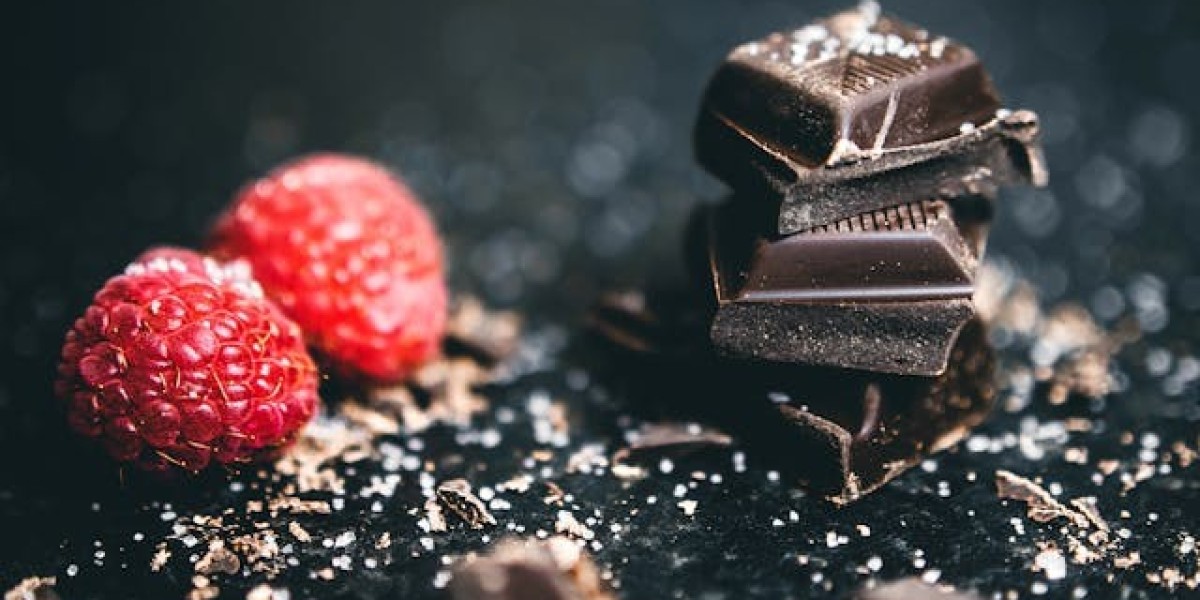In a world where sweetness often dominates the dessert table, there is something quietly powerful about dark chocolate without sugar. It doesn’t try to please everyone. It doesn’t mask its intensity with candy-like charm. It simply stands in its raw, honest form—rich, bitter, complex, and real.
Eating dark chocolate without sugar is not just a change in taste—it’s a shift in mindset. It’s about appreciating depth over sweetness, authenticity over indulgence, and choosing an experience that challenges the palate while nurturing the body.
This isn’t just chocolate. It’s a statement. A choice. A sensory exploration that invites you to discover the true nature of cacao, unclouded by sugar or excess.
A Taste That Speaks the Truth
The first thing you’ll notice about unsweetened dark chocolate is its boldness. It doesn’t ease you in. It’s not coy or polite. There’s no sugar to round off the edges, no softening of the flavors. It’s pure cacao—earthy, slightly acidic, rich with natural bitterness, and laced with subtle notes of fruit, smoke, or spice, depending on the origin of the bean.
At first bite, this can surprise those used to traditional chocolates. Some even call it “too strong” or “too intense.” But give it a moment. Let it melt slowly on your tongue. Allow your senses to adjust.
Soon, you’ll begin to notice the complexity—layers unfolding like chapters in a story. A slight nuttiness, a hint of coffee, a whisper of red berries, or maybe even a woody undertone. These flavors were always there in cacao, but sugar tends to drown them out. Without it, the character of the bean is free to express itself fully.
Redefining Indulgence
For many, chocolate has long been associated with indulgence—sweetness, comfort, celebration. But dark chocolate without sugar invites us to redefine what indulgence really means.
Is indulgence only about sugar highs and creamy richness? Or can it also be about depth, texture, and sensation? Can it be about choosing something that feels good in the body and still offers emotional satisfaction?
This form of chocolate doesn’t give you a sugar rush—it gives you clarity. It doesn’t leave you craving more—it leaves you thoughtful, sometimes even meditative. It’s not addictive; it’s grounding.
That, in itself, is a new kind of luxury. One that doesn’t depend on overdoing it, but on being fully present with the experience.
A Choice for Health Without Compromise
For those looking to reduce their sugar intake—whether for health reasons or personal preference—unsweetened dark chocolate can feel like a gift. It offers all the pleasure and nutritional value of cacao without the downside of added sugar.
Cacao is rich in antioxidants, especially flavonoids, which are known to support heart health and reduce inflammation. It’s also a natural source of magnesium, iron, and fiber. And because it contains compounds like theobromine and phenylethylamine, it can gently uplift mood and support mental clarity.
Many people also report that dark chocolate helps with sugar cravings—not by satisfying them, but by retraining the palate. The more you eat real, unsweetened chocolate, the more your body begins to crave its richness rather than artificial sweetness.
And unlike sugar-heavy treats that spike energy and then crash it, sugar-free dark chocolate offers a more stable, satisfying experience—one that energizes gently and sustains focus.
Slow Food, Deep Flavor
Dark chocolate without sugar isn’t designed for quick snacking. It demands a slower approach—a few bites at a time, savored with intention. This makes it a perfect fit for mindful eating.
Instead of mindlessly chewing through a bar, you’re encouraged to slow down. To break off a small piece, place it on your tongue, and let it soften. As it melts, the flavors open up gradually, inviting you to explore the full complexity of the cacao.
This slowness is not just about enjoying the taste—it’s about shifting your relationship with food. Moving from consumption to appreciation. From grabbing to savoring.
In this way, unsweetened dark chocolate becomes less of a snack and more of a ritual—one that connects you to the present moment, even if only for a few minutes.
The Emotional Landscape of Bitterness
Bitterness is an often misunderstood taste. It’s not as immediately appealing as sweetness or saltiness, and in many cultures, it’s something we’re taught to avoid. But bitterness has its own emotional landscape—one that is worth exploring.
It’s more grown-up, more reflective. It doesn’t shout; it lingers. It’s not about comfort—it’s about complexity. And complexity often mirrors life itself.
When you begin to embrace the bitterness of dark chocolate without sugar, you may find yourself opening up to other bitter flavors—coffee, leafy greens, black tea. Your palate expands. Your tolerance for subtlety increases.
Bitterness can be a reminder that not everything in life has to be easy to be good. That sometimes, the most rewarding things are those we grow to appreciate slowly, with patience and presence.
Versatile in the Kitchen
While it’s delightful on its own, unsweetened dark chocolate also shines in the kitchen. Because it lacks sugar, it can be used in both sweet and savory dishes, adding depth without tipping the flavor balance.
In desserts, it works well with natural sweeteners like dates, stevia, or fruit. In small amounts, it can be folded into granola, melted over nuts, or blended into smoothies for a deep, chocolatey base.
In savory dishes, it adds richness and body—especially in stews, chili, or sauces. Just a few grams can round out a tomato-based dish or bring warmth to a marinade.
Its flexibility makes it a quiet star in both traditional and experimental cooking. You can shape it into truffles, shave it over a salad, or pair it with cheese and olives for a truly unique tasting experience.
A Personal Journey
Many who fall in love with unsweetened dark chocolate describe it not as an instant passion, but a journey. It often starts with curiosity. Then resistance. Then, slowly, appreciation.
What begins as “too bitter” often becomes “just right.” What once felt unfamiliar becomes grounding. And before long, sweetened chocolate tastes… artificial.
This shift isn’t just physical—it’s psychological. You begin to notice how much sweetness is in other foods, how much sugar masks flavor, how rare it is to taste something honest.
Unsweetened chocolate becomes a kind of compass—a reminder of how much richness there is in life when you allow yourself to step beyond the obvious.
Pairings That Enhance the Experience
Although it’s powerful on its own, dark chocolate without sugar can be elevated through thoughtful pairings. Here are a few ideas that don’t involve adding sugar:
Nuts: Almonds, hazelnuts, or pecans bring texture and a natural sweetness from their oils.
Fresh fruit: Slices of banana, pear, or berries provide a contrast in texture and a hint of natural sugar.
Cheese: A mild cheese like brie or a sharp, aged cheddar can create a bold, unexpected pairing.
Black coffee or tea: The bitter notes of both beverages harmonize beautifully with pure dark chocolate.
Red wine or whiskey: In moderation, these enhance the richness and bring out hidden flavors in the chocolate.
Pairing is less about contrast and more about harmony. You’re not trying to mask the bitterness—you’re letting it shine alongside complementary flavors.
A Philosophy of Chocolate
Ultimately, choosing dark chocolate without sugar is more than a dietary choice. It’s a philosophy.
It says you value authenticity. That you’re open to complexity. That you don’t need food to be loud or sweet to be meaningful. That you’re interested in experiences that are layered, subtle, and real.
It also reflects a kind of self-respect—choosing to nourish yourself with something that feels both healthy and luxurious. That respects your palate and your body.
In a culture that often equates sweetness with satisfaction, dark chocolate without sugar is a quiet rebellion—a way to reclaim taste on your own terms.
Final Thoughts
Dark chocolate without sugar is not for everyone—and that’s okay. But for those who grow to love it, it becomes something irreplaceable. A daily ritual. A grounding flavor. A sensory reminder that less can be more, that bitterness can be beautiful, and that food can be both honest and satisfying.









